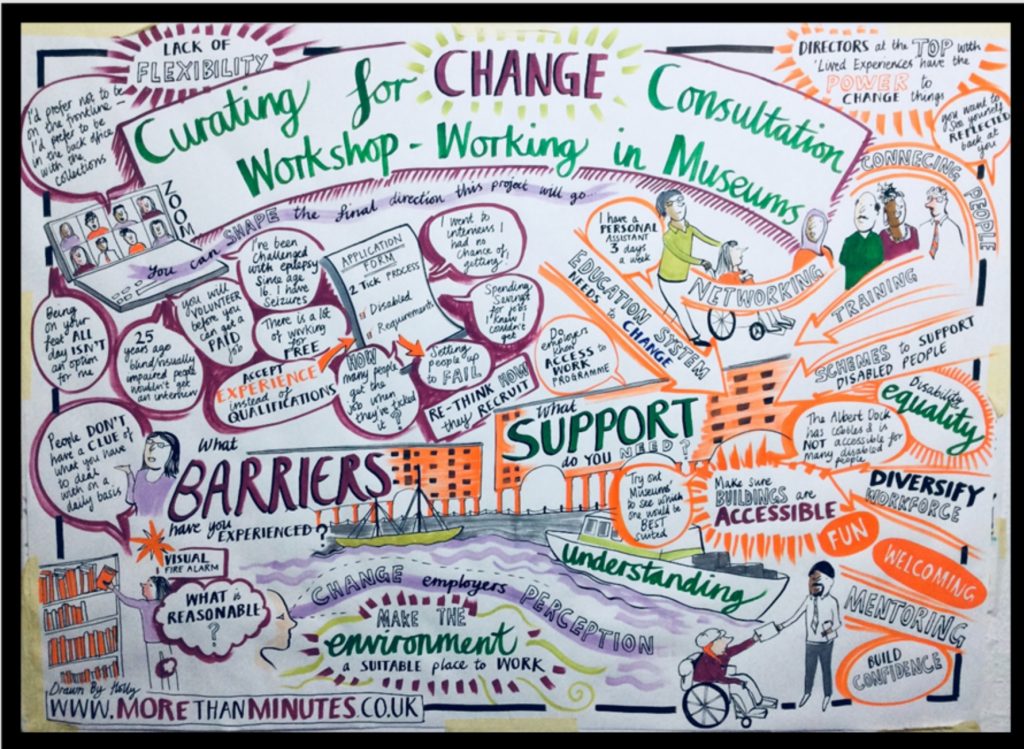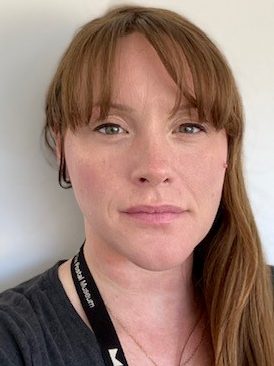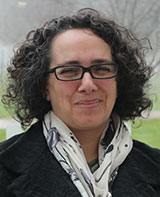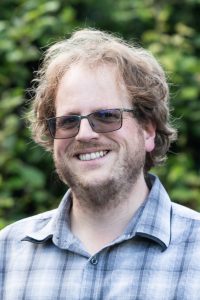
The Spring 2023 Rural Voices Seminar Series concluded with the opportunity to explore how rural museums can better represent D/deaf, disabled and neurodivergent people in our museums and using our collections.
Karen Sayer, Professor at Leeds Trinity University presented on the topic of ‘Listening to Livestock: A reflection on rural museums’ support for disability historical research’. This presentation reflected on the sensory histories associated with livestock management. Focusing on hearing and hearing loss, coupled with objects and sources from museums and archives in the network, Karen questioned how we might discover the history of disability in rural museums.
Emily Goff, Project Manager at Curating 4 Change noted that Arts Council England statistics show that only about 6% of those working in the arts are disabled, despite forming 21% of the working age population. She stated that underrepresentation of D/ deaf, disabled and neurodivergent people in our museums isn’t just a problem for disabled people, but for the museum and heritage sector as a whole. As well as hindering authentic disability stories with insights from the inside, it also makes it more difficult for museums – even if committed to access – to properly understand practical barriers for its visitors. Emily discussed why we need to tackle the recruitment problem, and how to enable and retain a more diverse work force, essential for museums to remain relevant for themselves and their communities.
In the resulting discussions resources created by Curating for Change on the Equity of Recruitment were highlighted, and – on the topic of historic terms for D/ deaf, disabled and neurodivergent people which could be found within museum object descriptions – the Buried in the Footnotes project was referenced.
This session was hosted by David Rounce, Project Director with Glencoe Folk Museum with guest speakers Emily Goff and Professor Karen Sayer.
Emily Goff is Project Manager for Curating for Change, the ground-breaking 3-year National Lottery Heritage Funded programme tackling the underrepresentation of D/deaf, disabled and neurodivergent people in our museums.
Emily is an experienced volunteer manager, museum educator and qualified primary school teacher who has worked for a range of independent, national and university museums and collections over her 12-year career.
Professor Karen Sayer is a Fellow of the Royal Historical Society, Co-Dir of the Leeds Centre for Victorian Studies at Leeds Trinity University and a Senior Fellow of the HEA. Her research focus is on the rural, that is conceptualisations of rural communities, landscapes and environments; human and animal relations in agricultural work and on the farm; labour in field, farm and home; the interior spaces of farmhouse and cottage, as represented, worked and lived.
Reading the material culture of objects held by the Thackray Medical museum, Leeds, she has collaborated on Managing the Experience of Hearing Loss, 1830-1950 (Palgrave, 2017) with Prof Graeme Gooday, Professor of the History of Science and Technology, at the University of Leeds. This addresses the circulation of knowledges about adult ‘deafness’ in the Victorian period and twentieth-century Britain until just after the First World War, and seeks to recover the histories of those who experience hearing loss through the histories of those technologies supposed to ‘correct’ it.
David Rounce is Project Director with Glencoe Folk Museum. He has worked in curatorial roles for thirteen years in a number of independent museums, most recently managing the award-winning rebuilding of Ravenglass Railway Museum in Cumbria.
David has particular interests in rural and industrial history, as well as a passion for curatorial work and thrives on the infinite variety of a career in the heritage sector. @RounceDavid and orphaned-objects.blogspot.com



